Part of the #FiveYearsLater #STL2039 series with Humans of St. Louis
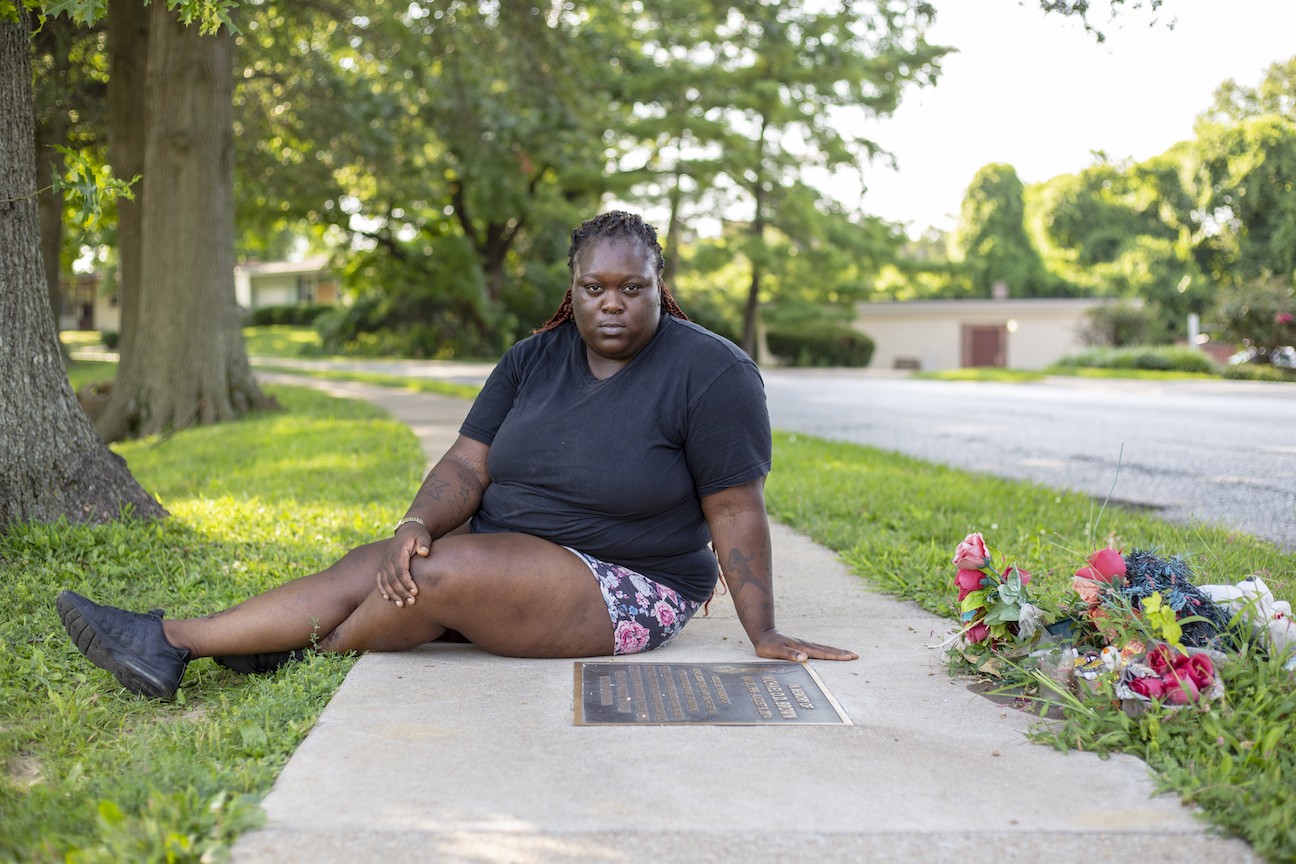
Ebony Williams, Photostory by Colleen O’Connell Smyth/Humans of St. Louis
Every anniversary I’m emotional—it’s like the first time it happened. We ride past here all the time and stop by to pay our respects. But on August 9th, all of the emotions come back. Sometimes I have to come out here and just cry about everything that transpired. How do we stop there from being another Mike Brown? In five years we haven’t gotten any justice. I wonder, at what point is this not going to be a joke for some people? At what point is Ferguson going to take responsibility for what occurred? People have their heads down and they don’t want to speak about it. And every time we do speak up about something, I feel like the police abuse the community. There’s no community engagement. You can’t do community engagement from a textbook. You need to actually know the people in your community. When do we heal? Because I don’t feel like we’re healing right now. We are not going to be able to heal until there is acknowledgement of the pain.
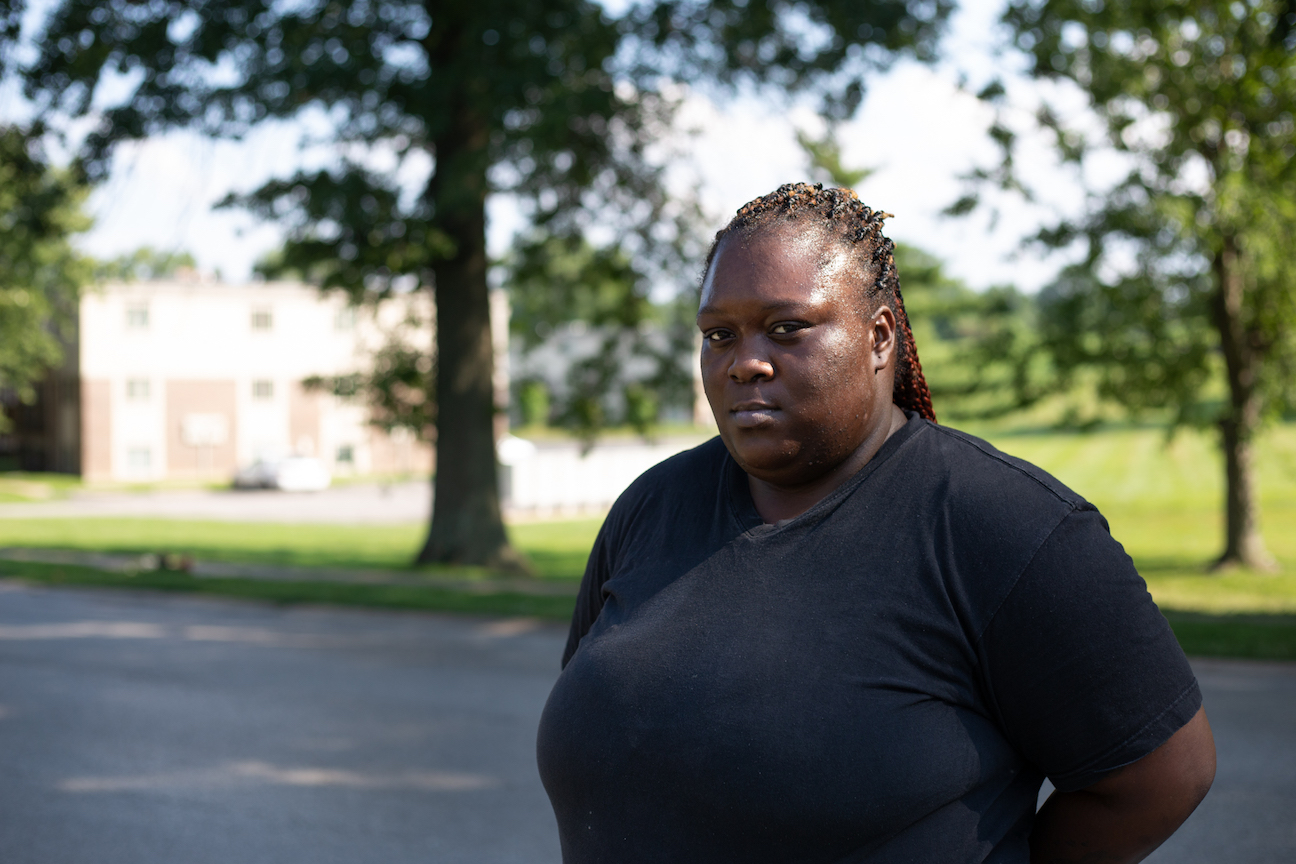
I couldn’t be scared, and I couldn’t ignore it. I remember thinking, ‘This boy just graduated high school. He’s only 18. He’s laying in the middle of the street for hours in front of houses where kids are getting out of school.’ There have been other ‘Mike Brown’s,’ so I don’t know what made this different. I realized how important it was to be educated about what’s going on in our neighborhoods. Fran Griffin was a big part of that. She made sure we were educated about every council meeting, and when we didn’t understand, she’d break it down until we knew exactly what a policy was and why it was trying to get passed. I don’t think I’ve seen a person more dedicated. Her getting elected was one of our biggest victories to come out of this. We needed somebody connected to the community making positive changes.
I remember when Park Ridge Apartments put out a bunch of people because one of the porches fell down on an apartment underneath. Fran and a few other community members got moving trucks, their own vehicles, and helped the people move. That’s genuine. That’s what being in a community looks like.
She wasn’t someone who got in the position and said, ‘Now I don’t have to tell you anything.’ She’s been doing everything she promised. She’ll tell us, ‘Hey, y’all. We need a bunch of people to get together and sit in on the council meetings.’ I remember when Park Ridge Apartments put out a bunch of people because one of the porches fell down on an apartment underneath. Fran and a few other community members got moving trucks, their own vehicles, and helped the people move. That’s genuine. That’s what being in a community looks like. We’re not just out here yelling and holding signs all day. I do search and rescue. We have a lot of missing kids. Lala More created it because people would walk up to her door asking, ‘Can you help me find my child?’ She’s got kids of her own, but I always see her drop what she’s doing to help do this.
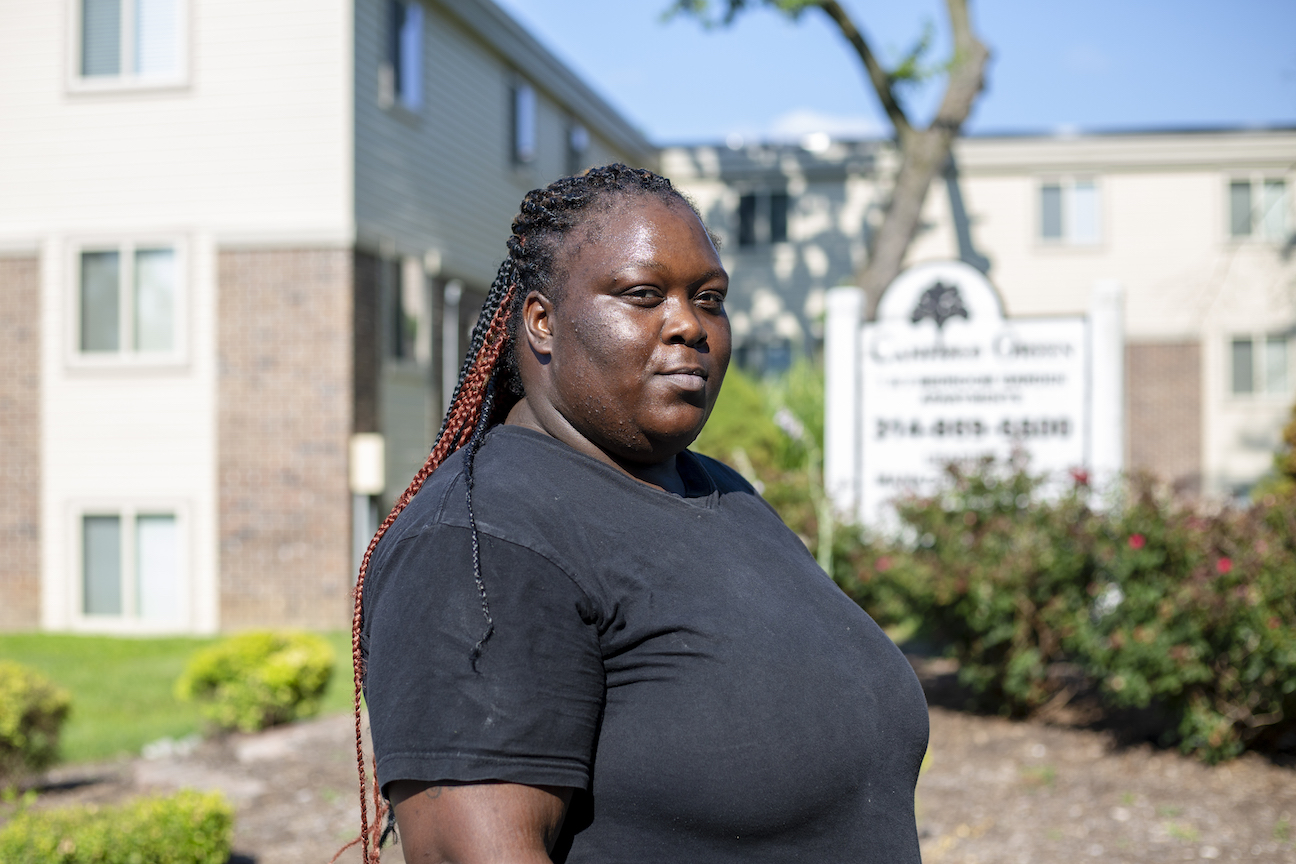
Sometimes it just takes one brave person to make a change. It doesn’t take thousands of people. The moment I decided to stand up and speak out was the moment that I started getting harassed by police officers and their supporters. There was a time that I left the protests and was followed by detectives all the way to my house. I got my tires slashed, too. I didn’t know what would happen and I didn’t want to put my family in danger. I still have a scar on my head from when it got smashed against a car. Some nights we would stay out there on the street, and my level of safety shifted. Police officers who stood on the front line would recognize my face. At one point after being arrested, they released all of our addresses to the public knowing full well that there were a bunch of their supporters out there who would follow us. I moved out of Canfield a year after. I couldn’t do it anymore. There were police here all day every day. I was so scared. They had been knocking on my door and leaving notes. I moved out of there and didn’t tell anybody.
Being around Black women that came out for the protest helped me grow.
Being around Black women that came out for the protest helped me grow. I came out here hot-headed. There wasn’t much you could say to me without me going off. They showed me patience and taught me how to deal with my anger and not just suppress it. They never turned their backs on me. It helped me make better choices for myself and the people around me. And some of our elders that were out here taught us that no matter how hard it will be, keep sticking it out. Everybody had a space. It was like, if the only thing you could do is love, then come give your love. If the only thing you could do is give a hug, come give a hug. And if the only thing you could give is a word, come give a word. Whatever you’d do, that’s what you brought out there. You didn’t have to hold a sign. You didn’t have to come out and stand against the police. If all you could offer was a helping hand, then give a helping hand. If all you could offer was your body, then just show up. It’s that simple.
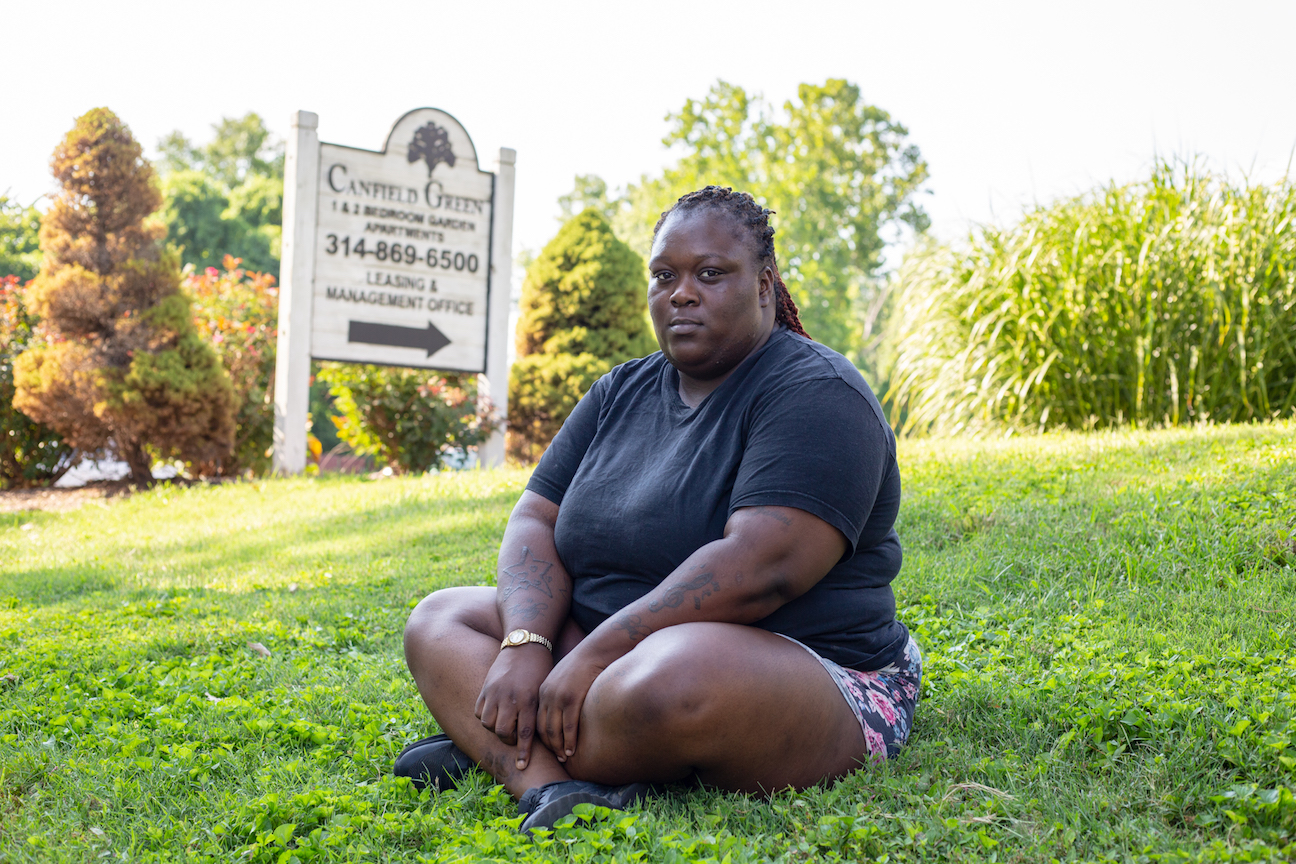
One of the most important stories was that of Joshua Williams. He was 18, so it touched him in a different type of way. He was emotionally unstable from everything that had transpired. Right after Mike Brown, Antonio Martin was shot around the corner in Berkley. During those protests, a bunch of people hopped off the highway to light the QuickTrip on fire. Josh tried to set a fire in a trash can with a bag of chips and a magazine. Somebody instantly came and put it out. A couple of days later they arrested him, and he’s been in jail ever since for almost five years. People say, ‘We’re out here for all of you.’ But it’s ‘out of sight, out of mind.’ They forgot about Josh, except for Bruce Franks. He’s done work trying to get Josh clemency. At his trial, we filled the courtroom with protesters and listened as the judge said that he wanted to use Josh as an example. A lot of people think this is easy for us. Like, it’s something that we just want to do. Nobody wants to march. Nobody wants to boycott. Nobody wants to be a target to the police or their supporters. We don’t want to get locked up and be in the system that we’re fighting against.
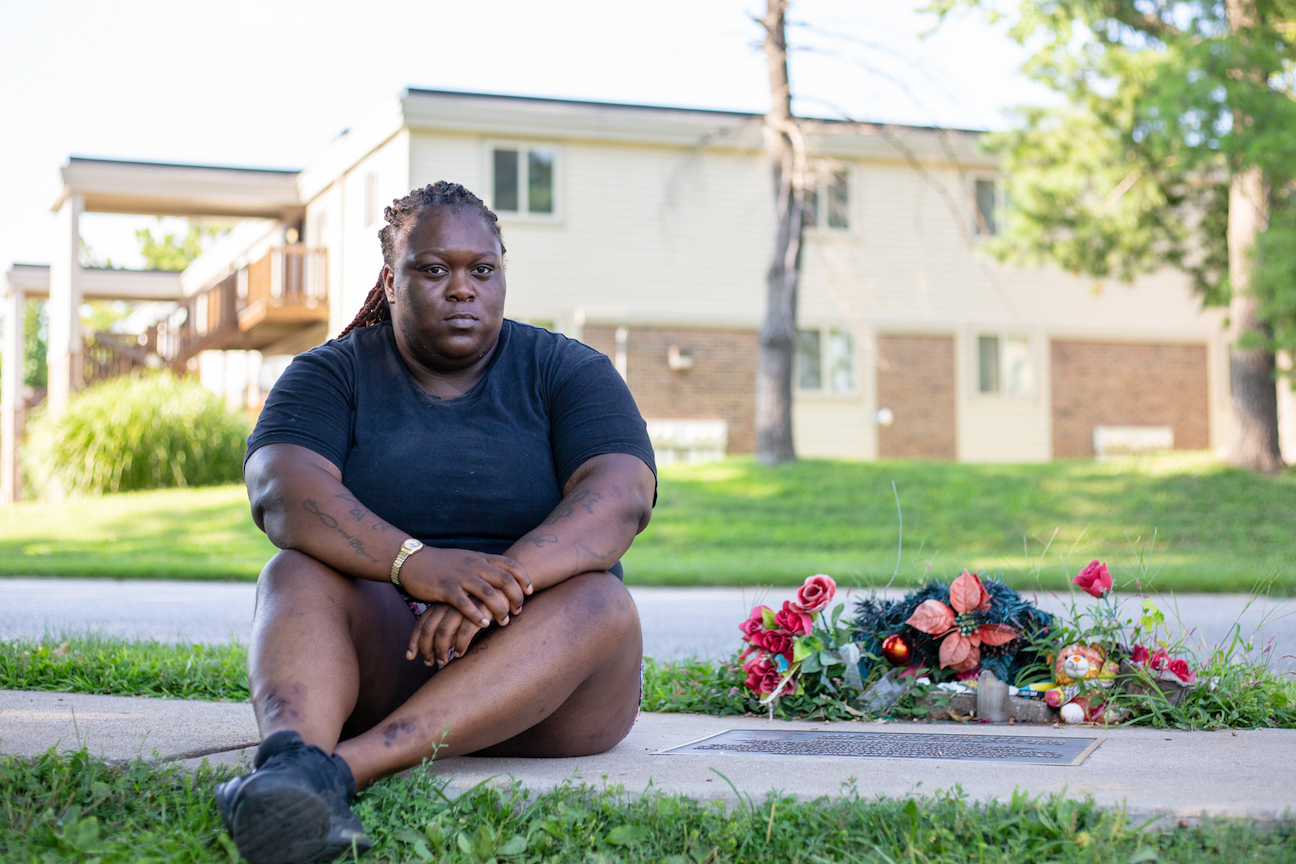
When I want to give up, I think about my family. I think about my friends who have kids and about us as a generation. This moment started with us, but injustice has been happening since before we were born. Somebody should’ve put a stop to these killings a long time ago so that we don’t have to fight and protest. And for those who stood up, they aren’t here anymore.
I keep fighting because every time I look at a little kid, I don’t want them to be limited in their life because of other people’s decisions. Because of the decision of a cop to kill their brother, sister, or anybody else in the community, or for anybody in the community to kill someone.
That’s what keeps me going. Somebody before me fought to the end and never gave up so that I could be free; so that I can walk the streets and not have to worry about getting locked up or carrying an ID that says my nationality. I keep fighting because every time I look at a little kid, I don’t want them to be limited in their life because of other people’s decisions. Because of the decision of a cop to kill their brother, sister, or anybody else in the community, or for anybody in the community to kill someone. The only way that our kids can have hope is through us. They don’t ask to be here. They just they grow up in whatever situation they’re born into. If people like me give up and say, ‘I don’t want to do this anymore,’ it gives permission for others to do that as well.

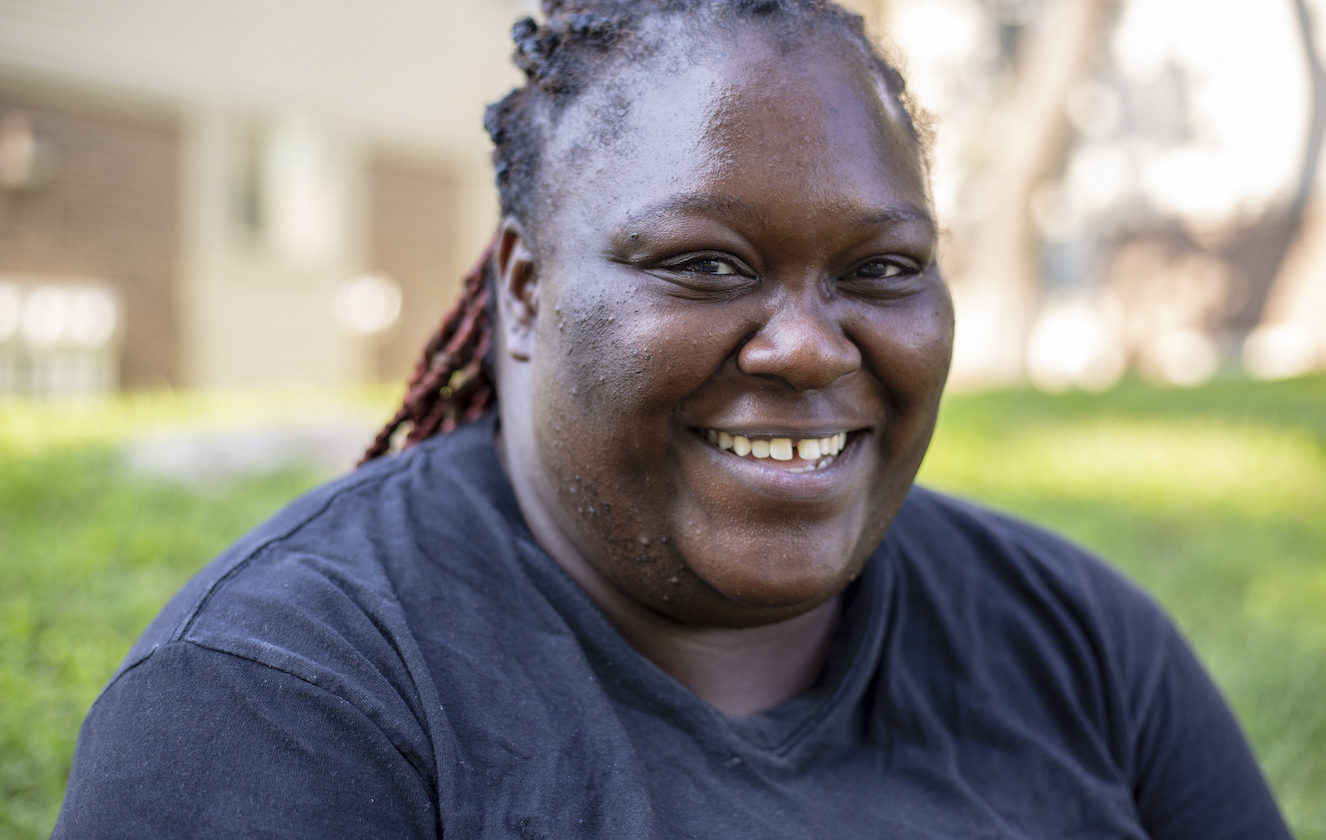
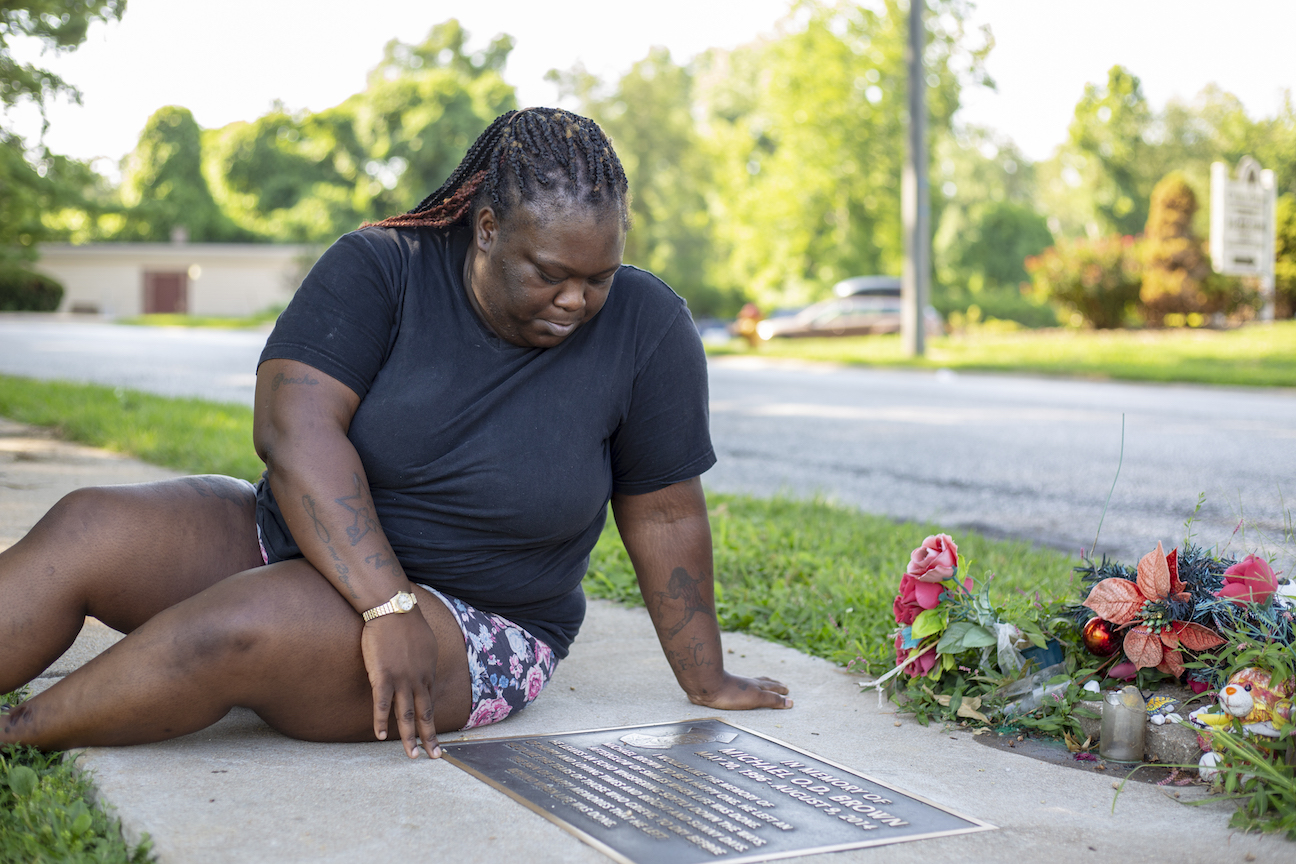
#FwdThruFerguson